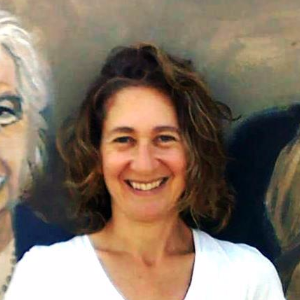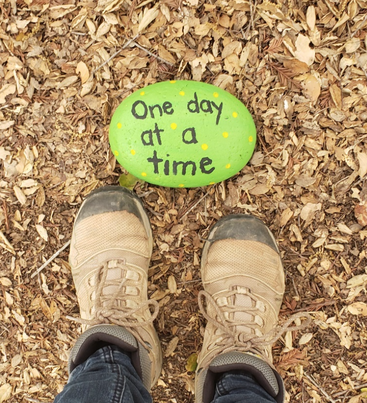“On this zillionth day of quarantine, I am feeling a bit lonely and despairing,” I shared on Facebook in a blue jag one afternoon a few weeks ago.
Before the pandemic, my Facebook posts were carefully curated. I learned from my son to be cautious online. Where my prompt invitingly reads: “What’s on your mind, Serena?” he changed his to say, “This is a corporate ploy to monetize your identity.”
But during the lock-down, I had been scrolling in times of boredom, lured by the irresistible hit of dopamine from comments and camaraderie. So impulsively I posted my lament.
Over the next few days, friends sent suggestions – for meditation and yoga, baking projects, podcasts and educational webinar links to last the rest of the lock-down. The messages were comforting, but embarrassing. Why had I let myself look so pathetic?
Until it dawned on me that most people wrote from their own need to connect, to commiserate in the guise of giving advice. Baring my vulnerability struck a deep well of empathy. Everyone, at one time or another, is surfing pandemic waves of fear, uncertainty and sorrow.
Traditionally and today, leaders are loath to be seen as needy or weak. Honestly is an enigma. Leaders refuse to “cower behind a mask,” when this is such a perplexing time to confront challenges face-to-face.
We feel the pressure to weather this unprecedented crisis with composure. I, too, arranged my bookshelf background for zoom calls and kept lipstick at my desk. I listened to 10% Happier and read the studies linking optimism with good health and immunity.
But crafted positivity feels a bit fake and casts a false cheer. Perky painted stones appeared along my neighborhood streets with inspirational messages like, “Hope Rocks!” and “One day at a time!” I thought to pick one up and rub the soothing smoothness like a worry stone, until I remembered – hand sanitizer and plastic gloves – normal life was out of reach.
Then last week, my father died, 3,000 miles across the country. He had been living in a nursing home with advanced dementia for years, with daily visits from my devoted mom and a huge clan of children, grand and great-grand kids. But over the past many weeks, no one was allowed to see him. I think now that my despairing post on Facebook was channeling his loneliness. He peacefully let go.
Flying to the funeral involved two long stressful flights over the course of a day. I encountered more people than I had in weeks, all lost on our own precarious journeys.
At some gravesides now, mourners are not even permitted. My three siblings and I could thankfully gather, all wearing masks and standing six feet apart. My father was such a hugger; how can I describe the grief-stricken chasm of awkward restraint, of yearning to hold my mother? Should we even take turns, wearing plastic gloves, with the shovel? Clanking against stones and clods of earth, I was grateful for the graveyard mud that clung on my shoes to carry back to California, along with memories of my dad planting flowers in the rich soil of our backyard garden.
Snow fell as we left the cemetery. (Rochester, NY in May!) It felt like God was crying.
All too soon, we each headed separately back to our homes to quarantine. At the airport, I posted again on Facebook to share news of my father’s death.
Among the outpouring of condolence notes, I heard from a childhood friend who remembered how my dad – a doctor – taught him the boy scout badge for bandages. And I felt he was still teaching us, through shiva, a way to tend to our wounds.
My father loved to daven. In one of the sad twists of this time, we all would have assumed that his two Orthodox sons would recite Mourner’s Kaddish. But with social distance restrictions, they are not making minyans in their home communities. So I, the rebellious Reconstructionist Rabbi daughter in Silicon Valley, zoom into virtual quasi-minyans morning and night. Mostly muted, we daven with unflattering camera angles catching our sadness, and then unmute, with a cacophony of saying kaddish. Friends and family link in from everywhere – a gang of chevre in Israel all joined for morning shacharit, though it was already evening in Tel Aviv. Their spectral smiles comfort and revive.
It feels like the whole world is sitting shiva. Around the globe we are staying home, sheltering in place. We are grieving for all who have died and will still be struck down, mourning for the multitude of losses. And we are counting the days to Shavuot, and after that Shloshim, to the next county order, to the time when my mom and others in retirement homes can venture out with loved ones.
Always, and especially at a time like this, community is an antidote for the sorrow, a vaccine for our souls. Virtually – in minyans, in Facebook posts and Wexner newsletters – we are reminded, despite distance, we are connected.
The flood of sympathy notes, emails, texts and calls overwhelm me with empathy. We are all vulnerable. Acknowledging it in ourselves opens the door to compassion, to greater giving and receiving, and to keener gratitude for life.
On my first walk after getting up from shiva, we spotted a stone in bubblegum pink. I felt a wave of concern for the schoolkid who painted it, probably longing for playgrounds, let alone playmates to pass the time. And now on my laps around the neighborhood, I search out the vibrant scattered stones – little manna messages from the world, sustenance for this long trek in the wilderness. Like the guideposts of Jewish tradition, they are tangible ageless reminders of Tzur Yisrael, the comforting rock of God’s presence. Yes, as it says on one of these pet rocks of our neighborhood, “We Can Do Hard Things!”


Get To Know The Author
WGF Alum Rabbi Serena Eisenberg (Class 9) serves as the Northern California Director of the American Jewish Committee (AJC)), and she is currently is rereading Love in the Time of Cholera.

